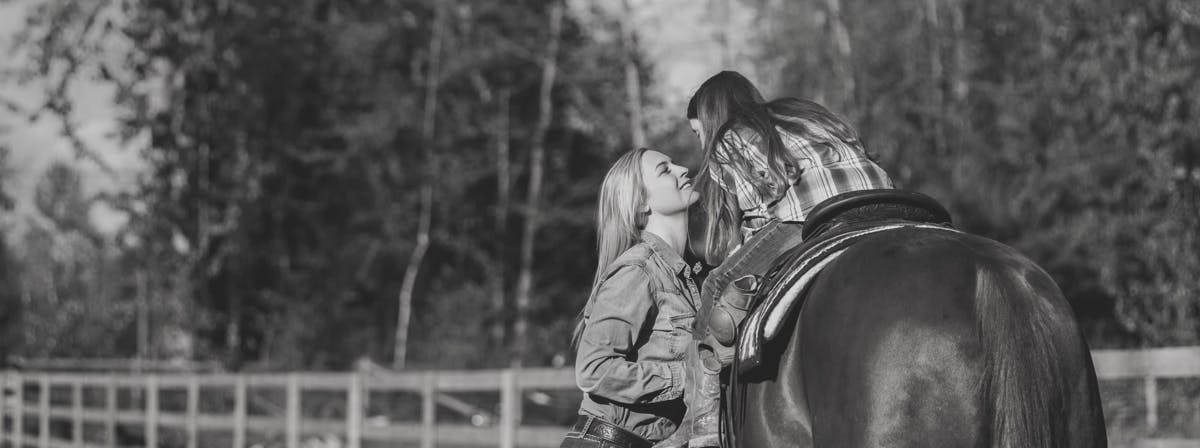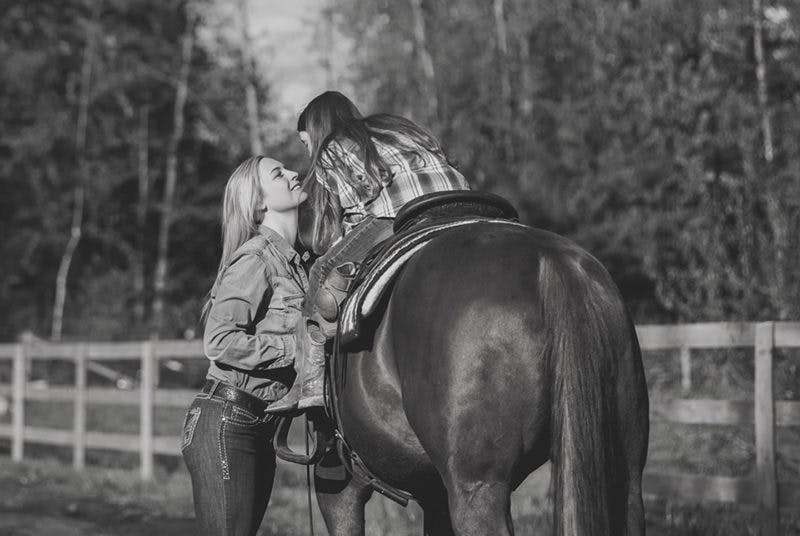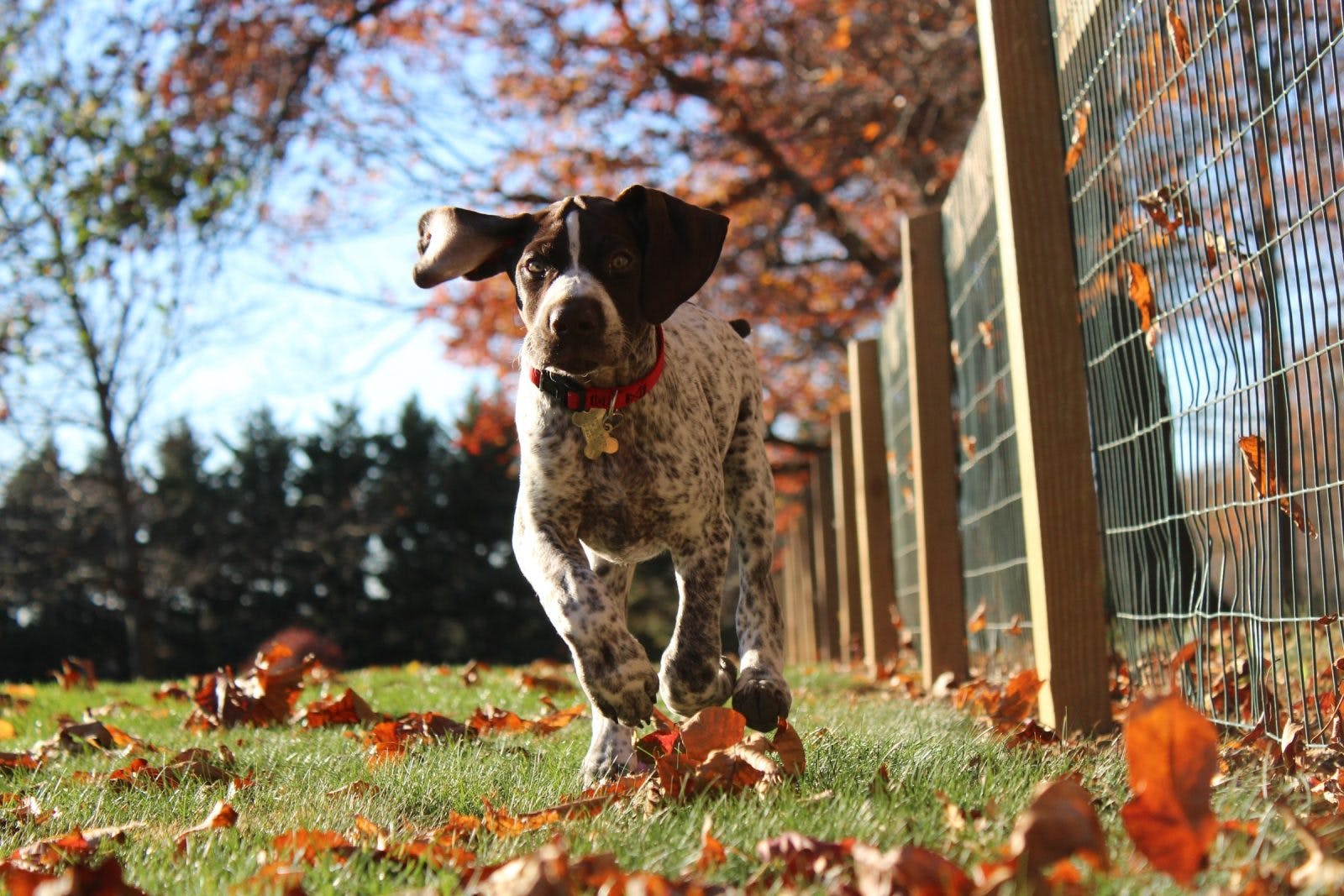Change of seasons brings about a change of scene and new temperatures which require adjustment for everyone including our furry friends. While we pick up a coat when the temperatures start to drop our four-legged family members adjust to the temperature too. Here are some things to watch out for as the season changes so you can care for your animals as we say goodbye to summer and the temperature decreases.
1. Check their coats
As the weather changes into the colder season animals will grow a thicker coat to adapt. This can sometimes cause dryer skin or other skin ailments to pop up. Keep an eye on their coats and make sure you’ve got a good grooming routine going as the seasons change so you can spot anything unusual. You could look at some antibacterial or moisturizing washes depending on what your furry friend needs.
If you’re keeping your horse in work over the cold season you might decide to clip them to avoid the excess sweetness from their coats. If you do this make sure they’re extra-rugged up and consider investing in an exercise sheet for when you’re riding. Maybe your dog needs a trim over the winter months too. Again, keep an eye on them and see if they need any extra warmth as less fur will leave them more exposed to the elements.
2. Rug up
Providing your horses with a rug in the fall season could be necessary depending on how cold it gets where you are. This can also be a good time to check the winter rugs and make sure there are no tears or buckles missing so you’re ready when winter comes around. For your doggy friends, they’ll probably only need a coat in the winter when it gets cold on their walks. It could be a good time to purchase one if you don’t already own one and you noticed they do feel the cold.
3. Keep an eye on their paws and hooves
Animals’ feet often take a lot of the impact from the change of seasons. As it gets wetter and muddier they can be the first thing to cause problems as bugs easily grow in these conditions. Keeping a good eye on their hooves/paws especially in the change of season is good practice to get into. Picking out your horse’s feet every day if they’re in the paddock is a good habit to get into. Maybe you introduce an anti-bacterial wash once a week too. For our dogs, taking a look at their paws quickly after walks can help spot any scapes or bumps that need attention before they turn worse.
4. Watch for stiffness and inflammation
Notice your horse a little more reluctant in the cold or your dog not being as active as they normally are? It could be a sign they’re feeling a little sore thanks to the cold. Being patient with them as they adjust to the seasons is important. Especially with older animals, pay attention to any signs of stiffness and inflammation, which could be a sign of a potential problem developing. Get onto these signs of inflammation and stiffness early and consult a professional about the best steps forwards.
5. Mood changes
As the seasons change our moods often change as well. This is the same for animals, so be aware and understanding of the change that is happening. Sometimes our mood can be down when the days are colder and shorter and animals can feel this way too. The colder months can often be more taxing in terms of energy levels so bear that in mind.
6. Food and pasture
The pasture quality will change throughout seasons, depending on where you are going into fall. You’ll need to monitor your pasture quality and feed uptake. You’ll most likely have to increase your horse’s feed as the pasture reduces. They’ll also need more feeding as it gets colder due to the extra energy used to warm up. Horses often drink less in the colder seasons which can sometimes be problematic. Keep an eye on their hydration and consider something like a salt block if you notice their water intake is too low.
Dogs, cats and other pets can sometimes need a change of feed routines as well. If they’re burning off more energy in different seasons throughout the year they’ll need an increase in their feeding. They’ll naturally burn off more in the cold so you might need to up this intake.
7. Where they sleep may need to change
You might need to change up where your animal is sleeping as the months get colder. If your dog sleeps in a kennel outside during the summer months it might be time to set them up inside over the winter or make sure they have enough warmth in their kennel.
You might stable your horses overnight which can help with keeping them warm. If they are in the paddock overnight make sure they’re rugged up enough to handle the cooler temperatures.
8. Keep up the exercise
Although we don’t tend to be as active in the colder months, it’s still important to get your animals out and about. Dogs will still need to be taken out for walks to burn off any extra energy off this is also a great way of keeping yourself active when the months get colder.
If you keep your horse in work over the winter, make sure you’re warming them up and down properly. Niggly injuries and strains will usually show up when it’s colder. Just like us, it’s also easier to pull muscles when we aren’t warmed up properly, so being extra careful about this when it’s colder helps avoid injuries.
9. More likely to catch colds
Catching a case of the sniffles happens to us when the weather changes and it also happens to our furry friends. If you notice a runny nose or change in them or a dry cough keep a close eye to see it does not develop into something more serious.
Thinking of buying or selling real estate in the Fraser Valley? Let’s talk!



